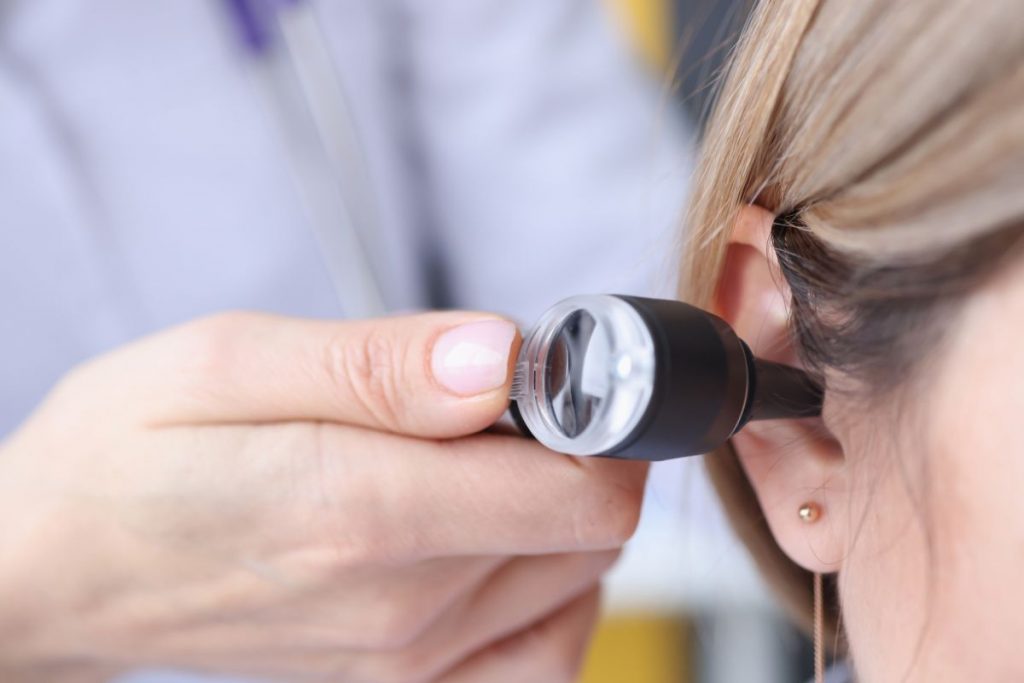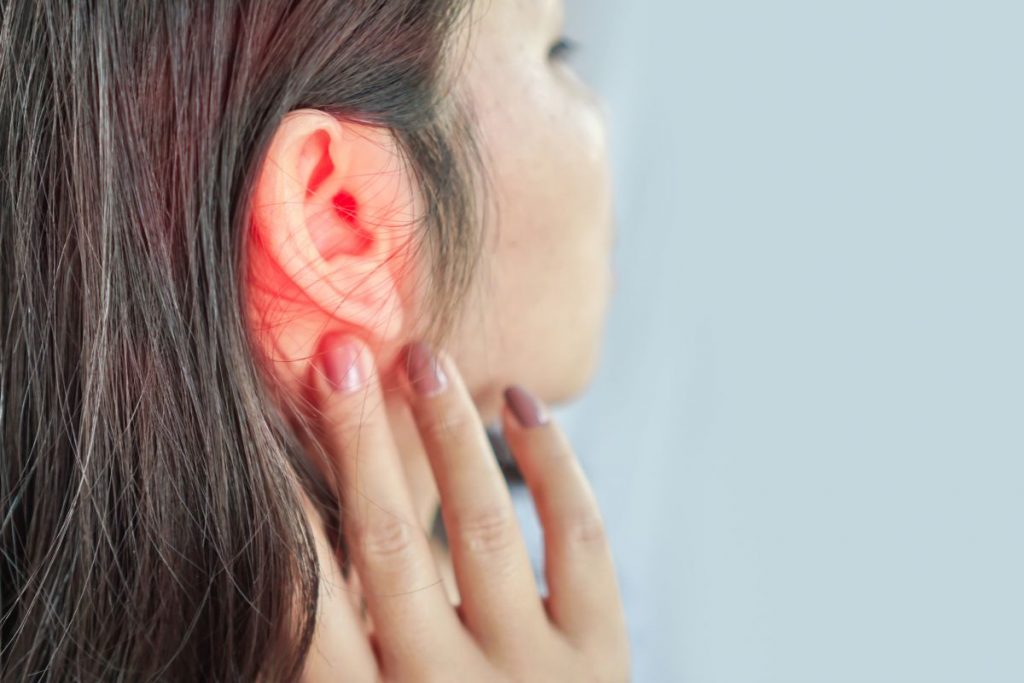Introduction to role of stress in ear health
In this article, Dr Shree Rao talks about role of stress in ear health. She is the Best Doctor for Cochlear Implants.
In the realm of ear health, one often focuses on factors like hygiene and exposure to loud noises. Yet, the complex interplay between one’s mental state and their auditory well-being is a subject that deserves closer examination. Stress, a pervasive facet of modern life, exerts a significant, albeit often overlooked, influence on our bodies, including our ears. In this comprehensive exploration, the intricate relationship between stress and ear health is unveiled. Driven by expert insights, including those of Dr. Shree Rao, a distinguished authority in otolaryngology, this journey seeks to reveal the profound impact of stress on our auditory system and how a deeper understanding of this connection can lead to more comprehensive ear care.
Physiological effects of stress

The physiological responses to stress encompass a range of changes in the human body. Notably, stress triggers an increased heart rate, elevated blood pressure, and muscle tension as part of the body’s coping mechanism. These physiological responses are interconnected with various aspects of overall health, including the well-being of the ears.
- Increased heart rate – Stress activates the sympathetic nervous system, leading to a rise in heart rate. While this response is adaptive in certain situations, prolonged or chronic stress can lead to consistent elevation of heart rate. This persistent increase in heart rate can have implications for the cardiovascular system, potentially affecting blood flow to the ears. Proper blood circulation is crucial for the maintenance of healthy ear structures and auditory function.
- Elevated blood pressure – Stress often coincides with an increase in blood pressure, a natural part of the “fight or flight” response. However, prolonged elevated blood pressure can have adverse effects on the vascular system, impacting blood flow throughout the body, including the delicate vessels in the ears. Maintaining adequate blood flow to the ears is essential for their proper function and health.
- Muscle tension – Muscle tension, particularly in the neck, shoulders, and head, is a common physical manifestation of stress. The intricate anatomy of the ear, including the Eustachian tube, which regulates pressure in the middle ear, can be affected by muscle tension. Tense neck and jaw muscles can disrupt the Eustachian tube’s function, potentially leading to ear-related issues such as pressure imbalances or discomfort.
Ear's vulnerability to stress
Exploring why the ears are particularly sensitive to stress involves delving into the specific aspects of the auditory system that can be influenced by stress-related factors.
- Complex anatomy – The human ear comprises a complex and delicate combination of structures, each with a specific role in the hearing process. From the external ear that captures sound waves to the intricate mechanisms within the middle and inner ear, any disruptions in these components can lead to hearing difficulties. Stress-related muscle tension can impact the ear’s function by affecting these structures, potentially leading to discomfort or hearing imbalances.
- Eustachian tube and pressure regulation – The Eustachian tube, a small canal that connects the middle ear to the back of the throat, plays a crucial role in regulating air pressure in the middle ear. Stress-related muscle tension, particularly in the neck and throat areas, can interfere with the Eustachian tube’s function, potentially causing sensations of ear fullness or pressure imbalances. Individuals may experience discomfort or even develop conditions like “ear barotrauma.”
- Blood flow to the ear – Proper blood flow is essential for nourishing the ear’s delicate structures and ensuring their optimal performance. Stress can lead to increased blood pressure and vasoconstriction, which narrows blood vessels. These changes can compromise blood flow to the ears, potentially impacting their health. Reduced blood flow can affect the auditory hair cells in the inner ear, making them more vulnerable to damage from loud noises or other stressors.
- Hearing sensitivity – The ears are designed to detect a wide range of sound frequencies and intensities. However, stress can make the auditory system more sensitive to noise. When stressed, individuals may perceive sounds as louder or more bothersome, which can contribute to discomfort or distress.
Stress and tinnitus
The intricate relationship between stress and tinnitus highlights the need for a comprehensive understanding of how stress management can play a pivotal role in alleviating the severity and impact of tinnitus symptoms.
Stress triggers a range of physiological responses in the body, including increased heart rate, elevated blood pressure, and muscle tension. While these responses are a natural part of the body’s “fight or flight” mechanism, chronic or excessive stress can lead to long-term changes in these responses. The auditory system, particularly the inner ear’s delicate hair cells, can be adversely affected by stress-induced changes in blood flow and muscle tension.
Stress has the capacity to amplify the perception of tinnitus. Individuals experiencing tinnitus may find that stress makes the phantom sounds more noticeable and distressing. Increased muscle tension in the head and neck areas, which often accompanies stress, can affect the perception of tinnitus by influencing the ear’s sensitivity to sounds.
Stress can disrupt sleep patterns, leading to insomnia or poor-quality sleep. Sleep disturbances are a known exacerbating factor for tinnitus. When individuals with tinnitus experience poor sleep due to stress, it can intensify their perception of tinnitus sounds, as they have fewer distractions or external noises to mask the phantom sounds.
Individuals under stress may engage in behaviors that inadvertently worsen tinnitus symptoms. For example, they might consume more caffeine or nicotine, both of which can affect tinnitus. Additionally, increased stress may lead to coping mechanisms like clenching the jaw or grinding teeth, which can exacerbate tinnitus through muscle tension in the head and neck regions.
The emotional toll of living with tinnitus is significant. Stress and anxiety resulting from the condition can create a feedback loop, with heightened emotional distress leading to an increased focus on tinnitus, further amplifying the distress.
Stress-related hearing loss
- Inflammatory responses – Chronic stress triggers a state of chronic low-grade inflammation throughout the body. This systemic inflammation has been associated with various health conditions, including cardiovascular diseases, diabetes, and neurodegenerative disorders. In the context of hearing, inflammation can affect the delicate hair cells in the inner ear, leading to damage and reduced auditory function.
- Circulatory changes – Prolonged stress can result in changes in blood flow and vascular function. This is significant for hearing health, as the auditory system relies on a healthy blood supply. Reduced blood flow can deprive the inner ear of essential nutrients and oxygen, contributing to age-related hearing loss.
- Oxidative stress – Chronic stress may lead to oxidative stress, a condition where the body’s antioxidant defenses are overwhelmed by the production of harmful reactive oxygen species (ROS). Excessive ROS can cause cellular damage in the inner ear and other tissues, accelerating the aging process and hearing loss.
- Cortisol and the endocrine system – Chronic stress prompts the release of cortisol, a stress hormone. Elevated cortisol levels over time can negatively impact the endocrine system, leading to hormonal imbalances. Hormones play a role in various bodily functions, including those related to hearing and auditory health.
- Auditory processing – Chronic stress can affect cognitive functions, including auditory processing. Stress-related cognitive impairments can lead to difficulties in understanding speech and other auditory stimuli, even when hearing thresholds are within the normal range.
- Behavioral factors – Individuals under chronic stress may be more likely to engage in unhealthy behaviors that can further exacerbate age-related hearing loss. These behaviors might include poor dietary choices, lack of exercise, smoking, or excessive alcohol consumption.
Preventing stress-related ear issues

- Stress reduction techniques – Incorporating mindfulness meditation, deep breathing exercises, and relaxation practices into one’s daily routine is recommended to lower stress levels.
- Regular physical activity – Engaging in at least 30 minutes of moderate exercise most days of the week can help reduce stress and promote overall well-being.
- Healthy diet – Maintaining a balanced diet that is rich in antioxidants and essential nutrients is advised to protect the auditory system.
- Adequate sleep – Establishing a regular sleep schedule and creating a comfortable sleep environment can contribute to better stress management and overall health.
- Time management – Prioritizing tasks, setting realistic goals, and creating a daily schedule that allows for breaks and relaxation is essential to reduce stress.
- Social connections – Maintaining a support network of friends and family can help alleviate the emotional burden of chronic stress.
- Seeking professional help – Considering consultation with a mental health professional is advisable if chronic stress is significantly affecting one’s life.
- Limiting exposure to stressors – Identifying and minimizing sources of stress, including work-related stressors, challenging environments, or stressful personal relationships, is crucial for reducing overall stress levels.
- Ear protection – Using hearing protection, such as earplugs or earmuffs, is recommended when individuals are exposed to loud noises in their lifestyle or occupation.
- Regular check-ups – Scheduling regular health check-ups, including hearing assessments, is essential for the early detection of hearing problems.
Conclusion
Within the context of ear health, the profound influence of stress emerges as a key factor. This journey of exploration, under the guidance of renowned experts like Dr. Shree Rao, brings to the forefront the intricate interplay between stress and auditory well-being. In conclusion, it becomes clear that stress is not solely a matter of mental or emotional concern; it extends its impact to our ears. The protective measures and stress management strategies outlined in this article equip individuals to embark on a comprehensive path of ear care. Recognizing the link between stress and ear health represents a crucial stride in safeguarding our auditory well-being amid the complexities of modern living.

Why consult EarSurgeon, Dr. Shree Rao?
Dr. Shree Cuddapah Rao is acclaimed as one of the best pediatric ENT specialists in Hyderabad. With 10+ years of deep domain experience in the field of ENT, she is the director at Dr. Rao’s ENT Super Specialty Hospital. She underwent specialized training in Rhinoplasty / Facial Plastic surgery at Singapore General Hospital, Singapore. She also underwent advanced training in cochlear implant surgery under Padmashri Dr. Milind V Kirtane and had a Fellowship in a cochlear implant. Having performed over 200 successful cochlear implants for patients worldwide, Dr. Shree Cuddapah Rao is also the recipient of several prestigious accolades in the domain of ENT. Dr. Shree Rao is one of the best ent doctor in hyderabad, to book an appointment click here.
Are you looking for
then you have landed at right place!






